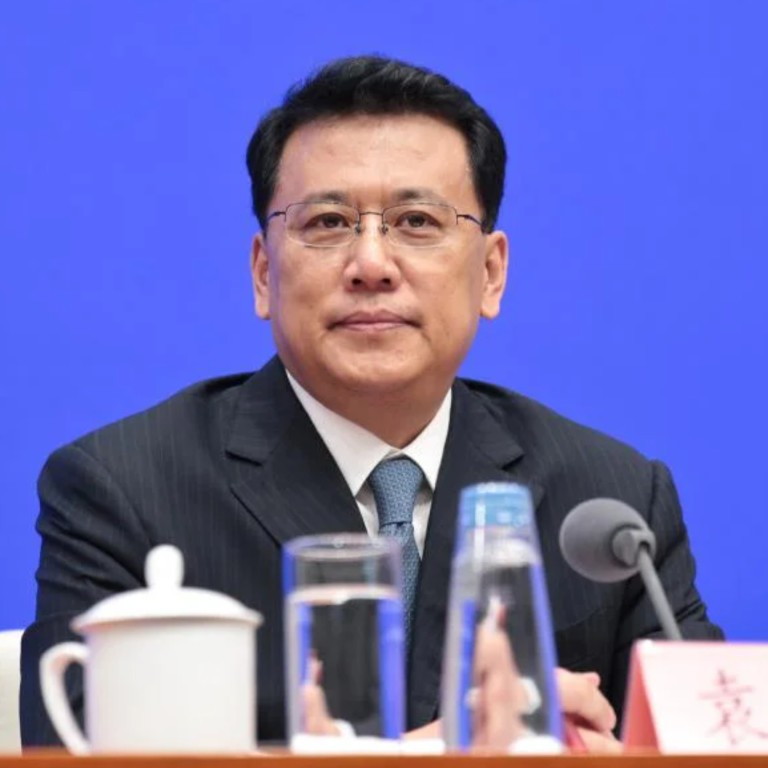
Rocket scientist Yuan Jiajun named China’s Communist Party chief for mega city Chongqing
- Yuan, a member of the party’s new 24-member central Politburo, spearheaded President Xi Jinping’s ‘common prosperity drive’ as Zhejiang party boss
- Chongqing party chief is a key regional role that often sees incumbents further raised to senior national leadership
Yuan was named to the new Politburo, pared down to 24 seats from 25 in the last congress and featuring a mix of Xi’s trusted allies and technocrats. All six other members of the all-powerful Politburo Standing Committee led by Xi are known to be his core confidants.
The Communist Party chief of Chongqing – one of the four directly administered municipalities alongside Beijing, Tianjin and Shanghai – is a key regional leadership role that often sees incumbents further raised to senior national leadership.
Chongqing is also a manufacturing hub in southwestern China and home to a handful of key companies producing laptops, smartwatches and cars.
Yuan, 60, who hails from northeastern Jilin province, is among the handful of technocrats shooting up the party hierarchy, a list that also includes Xinjiang party chief Ma Xingrui and Hunan party boss Zhang Qingwei, both aerospace engineers.
Before taking over in Zhejiang, Yuan was leader of China’s space programme, with the first Chinese astronaut going into space under his watch.
After studying aircraft design and applied mechanics at the Beijing Institute of Aeronautics and Astronautics – now Beihang University – Yuan joined the then ministry of aerospace industry in 1984.
He worked his way through a long list of administrative roles to become one of China’s top scientists. His rise from aerospace expert to political elite is consistent with Beijing’s long-standing policy of promoting officials with backgrounds in science and engineering.
Yuan was just 33 when he was appointed deputy commander of the Shenzhou manned spaceship project. He went on to oversee five Shenzhou missions – all of them successful.
His entry to politics came in 2012, when he joined the party standing committee in the northwestern Ningxia Hui autonomous region and later became its deputy chairman.
Xi’s end to China’s collective leadership model was years in the making
Over the next two years, Yuan supervised one of the country’s most ambitious energy projects – the ultra-high voltage power line from coal-rich Ningxia to Zhejiang, the electricity-hungry coastal manufacturing base and private business hub that is also Xi’s power base.
In 2014, the same year the project came online, Yuan was transferred to Zhejiang to serve as executive vice-governor.
Two years later, he was named deputy party chief of Zhejiang and head of its political and legal affairs commission. In 2017, he rose to provincial governor, and was appointed party secretary three years later.
China’s Communist Party looks to science cadres to push back at US tech squeeze
Last year, central authorities designated Zhejiang as a pilot zone for Xi’s signature “common prosperity” policy. In March, under Yuan’s guidance, the province outlined a strategy to narrow its wealth gap by 2025.
Under the plan, Zhejiang aims to have 80 per cent of households achieve an annual disposable income of 100,000 yuan (US$15,821) to 500,000 yuan by 2025, and for 45 per cent to reach an annual disposable income of 200,000 to 600,000 yuan.
Yuan’s vacancy has been filled by Yi Lianhong, former party chief of Jiangxi Province. Yi, 63, had governing experience in Hunan and Liaoning too.

